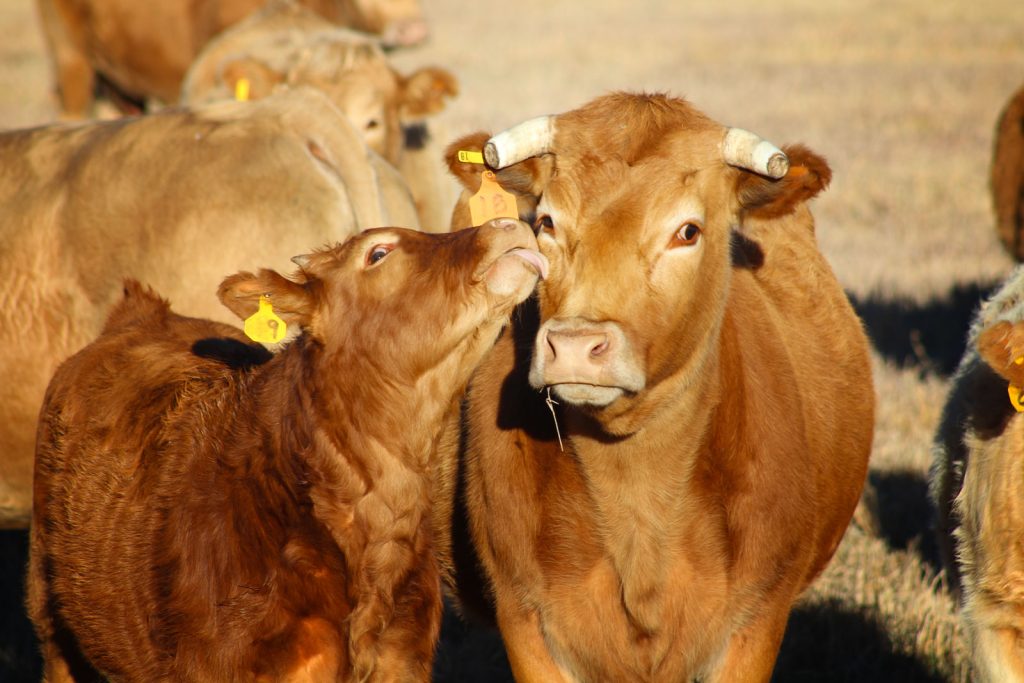United States Senator Martin Heinrich visited the Valle Escondido in eastern Taos County to talk to constituents about regenerative agriculture. Approximately 30 people were in attendance to speak with the Senator including former president of the Northern New Mexico Stockman´s Association Carlos Salazar, NNMSA member Pat Pacheco, and Taos County Commissioner Darlene Vigil. Pacheco acted as a tour guide for the group of ranchers, public officials, and reporters as we observed a private ranch as well as a U.S. Forest Service grazing allotment.
Regenerative agriculture involves farming and ranching strategies designed to retain soil nutrients, conserve water, and minimize environmental impacts. Speaking with NNMSA members, Questa del Rio News learned that rotation grazing is among the most effective ways to conserve water and preserve soil on grazing allotments.

“Fences are an easy way to control the cows and conserve water,” Salazar told the Questa del Rio News. “Without the fences the cows would roam everywhere and eat everything.”
Much of the frustration felt by NNMSA ranchers is directed towards the U.S. Forest Service for poor communication over what ranches need on their allotments as well as red tape involved in applying for and renewing permits. Salazar says an easy way the Forest Service can help them is to provide more physical infrastructure like fences to more effectively manage cattle.
Senator Heinrich told Questa del Rio News that his office would make efforts to improve communication from the U.S. Forest Service, going forward.
The Senator currently chairs the Senate Appropriations sub-committee for Agriculture, Rural Development, Food & Drug Administration, and Related Agencies. The sub-committee holds jurisdiction over most U.S. Department of Agriculture programs.

Senator Heinrich introduced a bill earlier this year directly related to regenerative agriculture in the U.S. Senate – S.1016 or the Agricultural Resilience Act of 2023. Generally the bill is described as “to address the impact of climate change on agriculture, and for other purposes.” More specifically the bill aims for “a 50% reduction in net greenhouse gas emissions” compared to 2010 levels by December of 2030 and “net zero emissions” by December 2040.
The Agricultural Resilience Act directs current federal investment in food and agricultural research to triple by December of 2030 and quadruple by December of 2040 with “a strong focus on climate change adaptation and mitigation, soil health and carbon sequestration, nutrient and manure management to curb nitrous oxide and methane emissions, agroforestry, advanced grazing management and crop-livestock integration, perennial production systems, on-farm and food system energy efficiency and renewable energy production, farmland preservation and viability, food waste reduction, and any other related areas, as determined by the Secretary [of Agriculture].”
S.1016 would also direct the United States to join the 4 Per 1000 initiative, a global organization dedicated to regenerative agriculture.
Senator Heinrich has also introduced an appropriations bill, S.2131, this year for his sub-committee directing $65,067,000 to Office of the Secretary of Agriculture, Office of Homeland Security, Office of Tribal Relations, Office of Partnerships & Public Engagement, Office of the Assistant Secretary for Administration (Dept. of Agriculture), Office of Assistant Secretary for Congressional Relations & Intergovernmental Affairs, and the Office of Communications.




